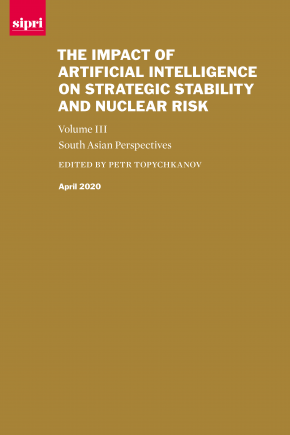The Impact of Artificial Intelligence on Strategic Stability and Nuclear Risk, Volume III, South Asian Perspectives

This edited volume is the third in a series of three. The series forms part of a SIPRI project that explores regional perspectives and trends related to the impact that recent advances in artificial intelligence could have on nuclear weapons and doctrines, as well as on strategic stability and nuclear risk. This volume assembles the perspectives of eight experts on South Asia on why and how machine learning and autonomy may become the focus of an arms race among nuclear-armed states. It further explores how the adoption of these technologies may have an impact on their calculation of strategic stability and nuclear risk at the regional and transregional levels.
Introduction
1. Introduction
Part I. The impact of artificial intelligence on nuclear weapons and warfare
2. The extensive role of artificial intelligence in military transformation
3. Rationales for introducing artificial intelligence into India’s military modernization programme
4. Artificial intelligence advances in Russian strategic weapons
5. The Indian perspective on the massive damage potential of advanced military technologies
Part II. The impact of military artificial intelligence on strategic stability in South Asia
6. Artificial intelligence and strategic stability in South Asia: New horses for an old wagon?
7. Military applications of artificial intelligence in Pakistan and the impact on strategic stability in South Asia
Part III. Arms control and confidence-building measures in the area of artificial intelligence and nuclear weapons
8. A pre-emptive ban on lethal autonomous weapon systems
9. Autonomous weapons in the South Asian context: Risks and countermeasures
Conclusions
10. The opportunities and risks of artificial intelligence for strategic stability in South Asia


